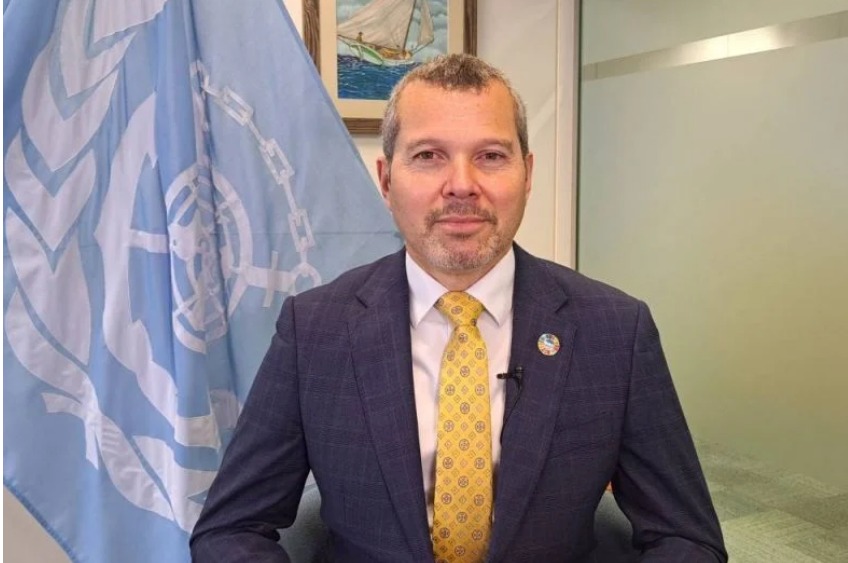Arsenio Dominguez, posing in an office at the International Maritime Organization (IMO) headquarters in London on February 6, 2024, during an interview with AFP. Photo by James Rybacki/AFP The Secretary-General of the International Maritime Organization (IMO), Arsenio Dominguez, stated in an interview with AFP that the institution is working « relentlessly » to find a solution to the crisis in the Red Sea, which is significantly disrupting global freight transportation. Since mid-November, Yemen’s Houthi rebels, backed by Iran, have launched dozens of attacks on ships in the Red Sea, claiming to target vessels they allege are linked to Israel to act in « solidarity » with the inhabitants of the Gaza Strip, embroiled in the conflict between Israel and the Palestinian Hamas. Despite US and British airstrikes in retaliation, the rebels have claimed two new attacks on Tuesday against an American ship, the Star Nasia, and a British ship, the Morning Tide. Maritime traffic in this area is crucial for global freight transportation, as roughly 12% of global maritime trade usually passes through the Bab al-Mandeb strait, which controls access to the southern Red Sea. Many shipowners have chosen to stop operating in the Red Sea, diverting their vessels to the longer route around the African continent from the south. However, « this is not the ideal solution, » for these companies, Arsenio Dominguez emphasizes, as it increases transportation costs, ultimately affecting the price of transported goods. Attacks in the Red Sea impose an initial test of the IME corridor « Human impact » « We now have over 60% of the annual tonnage that passed through the Suez Canal, which is now going through the south of Africa. Insurance costs have increased, fuel is being used in greater quantities, so there are additional costs, and there is a human impact on seafarers, as this represents an additional ten days of navigation, » details the Secretary-General of the IMO. The goal of this United Nations institution responsible for ensuring the safety of maritime transportation, headquartered in London, is to « provide practical and operational measures so that ships can continue to operate, » he insists, adding that he wants to remain « optimistic » about a resolution to the conflict. « We are working tirelessly to continue to coordinate any action leading to the resolution of this issue, » he assures, stating « engaging in dialogue with all parties. » The role of the IMO, explains its Secretary-General, is to « ensure that parties continue to engage in discussions so that the situation does not escalate beyond what has already occurred, and that we return to a safe maritime environment. »



